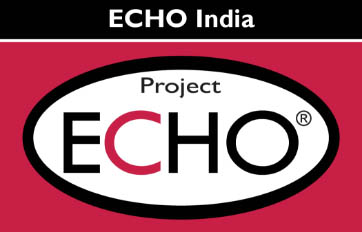In the rural heartlands of Gujarat, Primary Health Centers (PHCs) are emerging as strongholds of advanced care. With the support of the ECHO CMS Training Program, frontline providers are now confidently managing complex cardiometabolic diseases. This transformation has eased the pressure on district hospitals, improved access to timely treatment, and empowered communities by bringing specialized knowledge directly to their doorstep.
Before the program, the standard protocol for complex cases was often referral. Medical officers like Dr. Milan Mansukhbhai Hapliya of PHC Gomta describe a significant transformation. "Previously, we used to send first time detected patients to a specialist and follow their protocol. But after this training, we understand where to start treatment and how to adjust medications. The referral rate has become very low," he states.
This shift is profound and directly impacts patient outcomes. Dr. Chetan Varevadiya from PHC Bharatanagar provides a clear example: "Earlier, if a patient’s RBS was over 400, we would refer them immediately. But now, we manage the case ourselves and gradually bring the sugar levels down to normal. We are now successfully managing high RBS levels on our own. There are many such success stories, all thanks to the training."
This enhanced capability means patients living far from district facilities no longer face the financial and logistical hardship of unnecessary trips. "Their out of pocket expenditure has decreased significantly," Dr. Hapliya notes. This builds crucial trust in the local public health system.
The power of the ECHO model lies in its interactive, case based approach. Dr. Kapil Nimavat from PHC Amarnagar highlights the value of learning from expert MD physicians through real world scenarios.
This training had immediate, real time impact. Dr. Hapliya shares a powerful anecdote: "During my OPD, while the CMS training was ongoing, a patient with a history of stroke and hypertension came for a follow up. His blood pressure was low, and I was about to refer him to a higher facility. Just then, the ECHO session Q&A was happening, and I presented his case with the patient right beside me. Based on the expert advice, I stopped his medication. The patient is now stable, and his blood pressure is normal." This direct access to specialist guidance prevented an unnecessary referral and ensured correct treatment instantly.
Beyond Pills: A Holistic Approach to Health
A cornerstone of the program’s success is its emphasis on holistic care. Medical officers now prioritize counseling and lifestyle modification with the same importance as medication. Dr. Nimavat explains, "We now advise patients about their lifestyle what to eat, when to eat, how much to eat, what not to eat, and what exercise to do and how much. We used to miss counseling, but now we are giving counseling to every patient."
Dr. Jyoti Patel of PHC Pardi found immense value in sessions on lifestyle modification. "Apart from medication, if we focus on this, then some medicines can be reduced. For patients, this is a very big thing," she says. This approach is particularly vital for pre diabetic and pre hypertensive patients. Dr. Jatin from PHC Tatam explains, "We now counsel these patients and explain about diet and exercise so that in the near future they don't need treatment at all."
The impact has extended beyond the clinic walls, influencing even the healthcare providers themselves. Dr. Jyoti Patel reveals a personal transformation that sparked a community movement. "The biggest change has been in our own lifestyle. We now practice yoga every morning at our health center. I have lost 2 kg, my colleague has also lost weight," she shares. "When a lady changes her lifestyle, it impacts the entire family."
Building a Sustainable Future for Rural Healthcare
The program’s success is attributed to its meticulous design and passionate support. This was backed by dedicated coordination from administrators who provided personal follow up to ensure every medical officer could participate despite their busy OPD schedules.
The result is a cadre of confident, highly skilled medical officers. Dr. Hapliya captures the sentiment: "Our confidence has increased significantly. The training provided A to Z coverage." This knowledge, he adds, is something "even medical college residents don't get lectures on."
The success of the CMS program in Gujarat is not measured only in numbers. It is written in the relief of a patient spared a 50-kilometer journey, in the gratitude of a family whose sugar levels are under control, in the pride of a doctor who finally feels equipped. It is written in the shift from disease to wellness, from reaction to prevention, from protocol to presence. And in those shifts lies the real story: not just better healthcare, but a new language of trust and care that is slowly, steadily, changing the way Gujarat heals.
